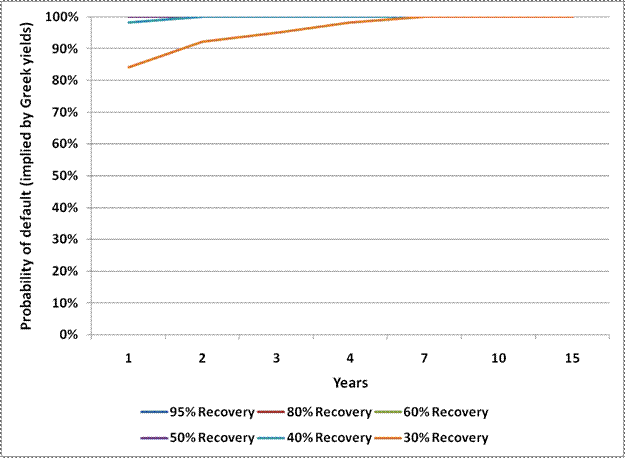On Friday, the yield on 1-year Greek debt surged above 90%, while Wall Street still has barely blinked, evidently convinced by the bailout mentality of the past three years that governments will simply make the problem go away with public funds. One thing is certain - public funds will indeed be used to address this problem. But it is also nearly certain that those funds will be used to recapitalize European financial institutions (ideally, restructured ones) following a major default of Greek debt. The reason for this is simple. With Greek debt now beyond 144% of GDP and on track toward 180% by year-end, neither a further extension of credit to Greece, nor a modest writedown of its debt, would be sufficient to restore Greece's ability to service that debt over time.

[Geek's Note: The implied probability of default is calculated as (1-exp(-(Y-Yf)*T))/(1-R), where Y is the yield in decimal form, Yf is the yield on a presumably default-free security (in this case, we're using comparable German yields), T is maturity, and R is the recovery rate, also in decimal form.]
Read the complete commentary.

[Geek's Note: The implied probability of default is calculated as (1-exp(-(Y-Yf)*T))/(1-R), where Y is the yield in decimal form, Yf is the yield on a presumably default-free security (in this case, we're using comparable German yields), T is maturity, and R is the recovery rate, also in decimal form.]
Read the complete commentary.